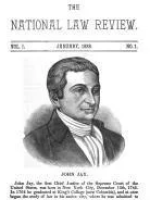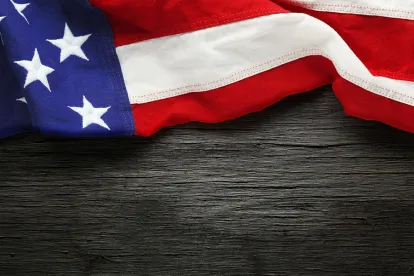In today’s marketplace, designations like “women-owned” or “veteran-owned” can make a difference as consumers want to shop at businesses with characteristics they support. These certifications help businesses to further their goals, reach their target audience easily, and receive additional funding from government sources and agencies. Recently, numerous false self-certification of woman-owned small businesses (WOSB), veteran-owned small (VOSB), and service-disabled, veteran-owned small business (SBVOSB) allegations have led Congress to ask the Small Business Administration to eliminate the self-certification process, in an effort to reduce the number of businesses receiving these certifications, and to ensure the designations are reserved for businesses that embody the stated characteristics. If these rules are adopted, businesses can no longer self-certify for WOSB VA procurement; VOSB and SDVOSBs are also required to go through more stringent certification processes for Veterans Affairs and other government procurement funding agencies.
Providing insight into these new regulations is C. Kelly Kroll, a government contracts attorney with Morris, Manning, & Martin. She serves of counsel for the firm’s Washington D.C offices, and practices in corporate litigation, and government contracts & grants law. She has represented federal, state, and local government contract claims, and assists clients through all phases of the government procurement process. She specializes in bid protests, negotiated solicitations, contract claims, and audit defenses and her experience makes her a good person to speak with to help understand these new regulations. She was willing to speak on the new parameters and the reasons behind them, and the new regulations implemented by the SBA as well as the bid protest rule requirements.
SBA’s New Parameters & Restrictions: Cutting Back on Self-Certification & New Certification Process
Kroll says, “Previously, these small businesses could go through a self-certification process. However, because of the high number of false self-certification filings new systems are being effectuated to avoid future occurrences. Kroll explains, as an example, that it was easy for a man to sell 51% of his company to his wife and claim it was woman-owned. “There were never any questions asked,” added Kroll. SBA’s certification process will hold companies to a more stringent vetting process.
Kroll detailed the additional measures which are being implemented, to make WOSB, VOSB, and SDVOSB more difficult for companies to obtain. She outlines the steps being taken, saying: “Now SBA and the VA are requiring companies claiming special status to submit documentation demonstrating ownership, control and day-to-day management of the firm by the individual or individuals upon whom the certification is based.”
Applicants seeking funding for their small business must meet credentials to qualify in that small business category. For WOSB submission, applicants must qualify as a small business, and be at least 51% owned and controlled by a woman. Women should manage day-to-day operations, and make long-term decisions for the company.
In order to qualify as a VOSB, an eligible individual is one who is a service-disabled veteran, or the surviving spouse of a disabled veteran. Under current SBA rules, surviving spouses aren't eligible to own or control businesses. Further, under current VA rules, surviving spouses only qualify to control these businesses when the veteran had a 100% disability rating or died as a result of the disability, meaning few businesses currently qualify under the VA rules.
Applicants who wish to apply for SBA certification as a SBVOSB the service disabled veteran (SDV) applying for certification must have a service-connected disability, which is determined by the DoD or VA offices. One or more SDVs must own 51% or more of the business, control management of the business, and must be in charge of daily decision making and long-term decision making for the business.
Once eligibility of one of the three groups is met, the certification application is completed online by applicants. Depending upon the certification sought additional documentation may be requested of applicants, to further demonstrate the characteristic being sought after, such as the Veteran-family background. These documents might include disability ratings, ownership of, or control of the firm and management process within the company by the veteran who is applying for certification.
Document requirements will differ based upon the type of entity which is applying for certification. Applications are then further reviewed by the CVE which may also be followed up by requests for additional documentation by applicants.
Companies will be required to obtain approval from the Small Business Administration (SBA) or third-party certifiers for WOSBs, or VA, for VOSBs and SDVOSBs. In addition to the SBA, Kroll also indicated additional third-party certifiers companies can go through for approval including the:
-
El Paso Hispanic Chamber of Commerce.
-
National Women Business Owners Corporation.
-
U.S. Women’s Chamber of Commerce.
-
Women’s Business Enterprise Counsel.
Kroll also indicated additional barriers which are being implemented in the bidding and procurement process to obtain VA certification which include:
-
For VA procurements that are set-aside for SVOSBs or VOSBs, to bid, the entity
-
must first be verified by the VA’s Center for Verification and Evaluation (“CVE”)
-
and listed on the VA’s Vendor Information Pages (“VIP”).
The intent is to make it more difficult for businesses to improperly claim WOSB, VOSB, and SDVOSB status, and to, therefore, make those statuses more meaningful.
The Bid Protest Process -
Currently, there are limited systems in place to correct certifications that are inaccurate. Kroll elaborates: “False certification can be identified in a variety of ways, but generally comes to light through allegations by a competitor with knowledge of the company’s operations or a disgruntled employee with an ax to grind.”
To this end, the SBA will implement requirements which will allow individuals to file protests with the SBA against VOSB and SDVOSB businesses if they suspect they are falsely certified. Kroll indicated that “these procedures relate to the award of a VA contract and that non-VA procurement related size protests and SDVOSB status protests continue to be subject to other similar SBA protest rules.”
Kroll further detailed the rules which are required in the protest filing process. Under the new rules, the VA, contracting officers and private contractors can file CVE protests to be heard by the SBA’s Office of Hearings and Appeals. A few key points are outlined below:
-
Who May File a CVE Protest? (13 CFR § 134.1002): The Secretary of the VA, his/her designee and, in the case of a small business that is awarded a VA contract, the contracting officer or an offeror.
-
Contents of the CVE Protest (13 CFR § 134.1005): A CVE protest must be in writing and include:
-
solicitation or contract number,
-
specific allegations supported by credible evidence that the concern being protested does not meet the eligibility requirements for inclusion in the CVE database,
-
the name, contact information, and signature of the protester or its attorney
-
a request for a protective order if the protester intends to seek access to the CVE case file.
-
Standard of Review Burden of Proof (13 CFR § 134.1010): The protested concern has the burden of proving its eligibility by a preponderance of the evidence.
The outcome of these bid protests will be primarily based on the case file and information provided by the protester, the protested concern, and any other parties. However, the judge may investigate issues beyond those raised in the protest and may use other information or make requests for additional information.
These new regulations are going to help reduce the number of false certifications which are currently occurring throughout the country, affording companies that actually need assistance in funding to more easily obtain it. By reducing misuse of the self-certification process, the SBA Certification will create better opportunities for women and veteran-owned small businesses trying to obtain funding. The legislation should help create a greater balance for small businesses, and afford companies who are at a disadvantage an opportunity to obtain government funds which will help their business thrive. Ultimately, SBA certification will help strike a competitive balance for small businesses who are faltering because of funds being misused, and affording those who wouldn’t have otherwise qualified for funding, an opportunity to receive government support.
The new regulations will go into effect October 1, 2018 and can be viewed here.




 />i
/>i

